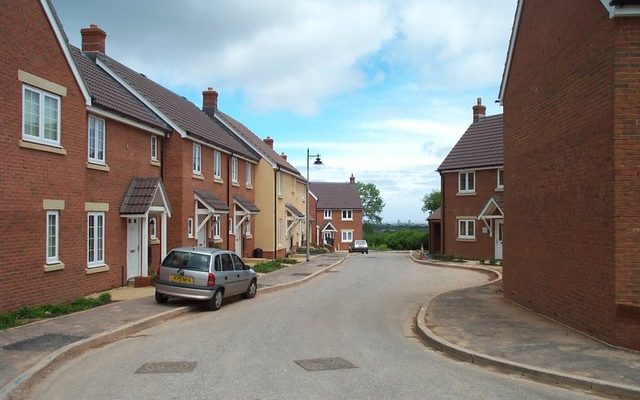
This week the Transport Knowledge Hub (TKH) launched a series of speaker meetings across the UK on the importance of sustainable transport in the development of new housing. The event, kindly hosted by KPMG in their Glasgow offices, highlighted the role that sound sustainable transport investment can play in unlocking the benefits of new housing. KPMG is finalising a major piece of research into the positive impact that joined-up transport and housing policy can have on local communities.
The event was opened by KPMG’s head of Corporate Finance, Government and Infrastructure, Gerald Whelan and TKH’s Claire Haigh. While Gerald focused his remarks on the need to think strategically about transport and housing, Claire reminded the audience that investment in sustainable transport brings excellent returns: every £1 invested in local bus infrastructure for example can deliver wider benefits of up to £8.
The event was the first opportunity for KPMG to share some early findings from its research and Chelsea Dosad at KPMG offered a brief summary. At a time of fiscal restraint, the importance of a joined-up approach to transport and planning is more important than ever and Chelsea set out the need for an integrated approach to support prosperous, inclusive communities, increased economic activity and reduced dependency on the car. Amongst the challenges identified by KPMG’s research are a lack of long-term funding, pressure on local authority spending and too siloed an approach to transport and planning.
In response to the presentation from KPMG, Mic Ralph of Glasgow, noted that many of the recommendations in KPMG’s research were underway in Glasgow already. However, it was noted that beyond the main cities of Scotland services are limited. Robert Samson of Transport Focus noted that more must be done to attract people to public transport, as well as ensuring it is an option. Both Sarah Boyack of the Scottish Federation of Housing Associations and Clare Daly of Sustrans emphasised the need for policies that promote active travel.
The event’s keynote speakers then took the floor in turn. Martin Griffiths, Chief Executive of Stagecoach, said that the KPMG research reinforced his view that progress depends on money, incentives, planning and communication – and the need to address congestion.
Craig Sanderson, Chief Executive of Link Housing stressed that housing associations are a different sort of developer, investing in communities for the long term. He also emphasised the importance of affordable public transport options for tenants in social housing.
The Leader of Glasgow City Council, Cllr Susan Aitken, thanked TKH for the third opportunity to work with them and outlined some of the Council’s transport and housing challenges. In particular she said that it was no longer acceptable to redevelop areas of the city for new housing without first building in a sound local transport plan.
The final speaker, Cllr Lesley Macinnes, Transport and Environment Committee Convenor at Edinburgh City Council, set out the particular challenges in her city, including the extension of the controversial tram scheme. She endorsed the plans to extend the trams and noted that last year saw 6.6m customer journeys by tram.
There followed a lively and well-informed discussion picking up on many of the points raised by the panellists. The clear conclusion of the debate was that TKH’s role in bringing together transport providers, councillors and housing experts was making a timely contribution to the vital debate about housing and sustainable transport.
